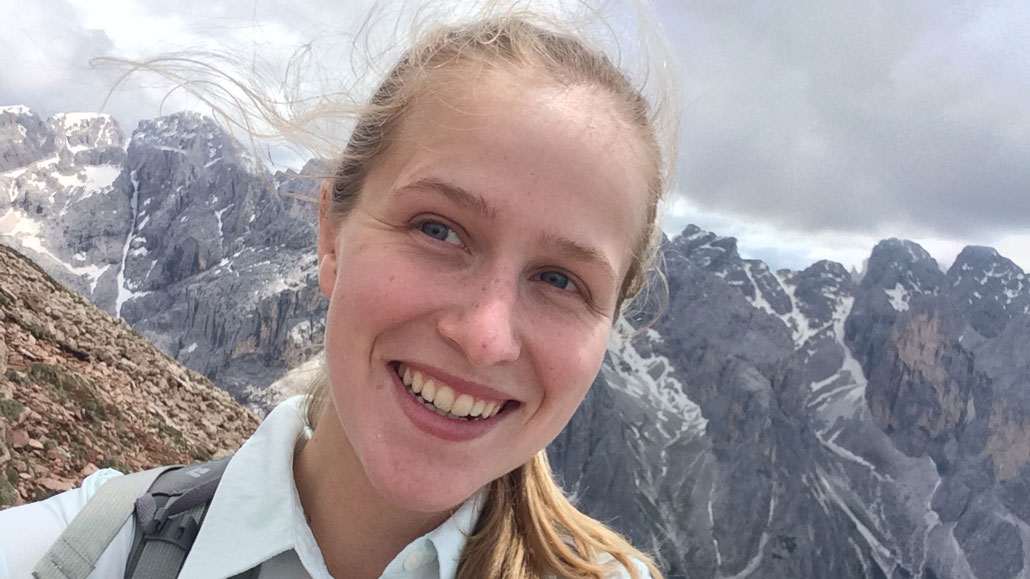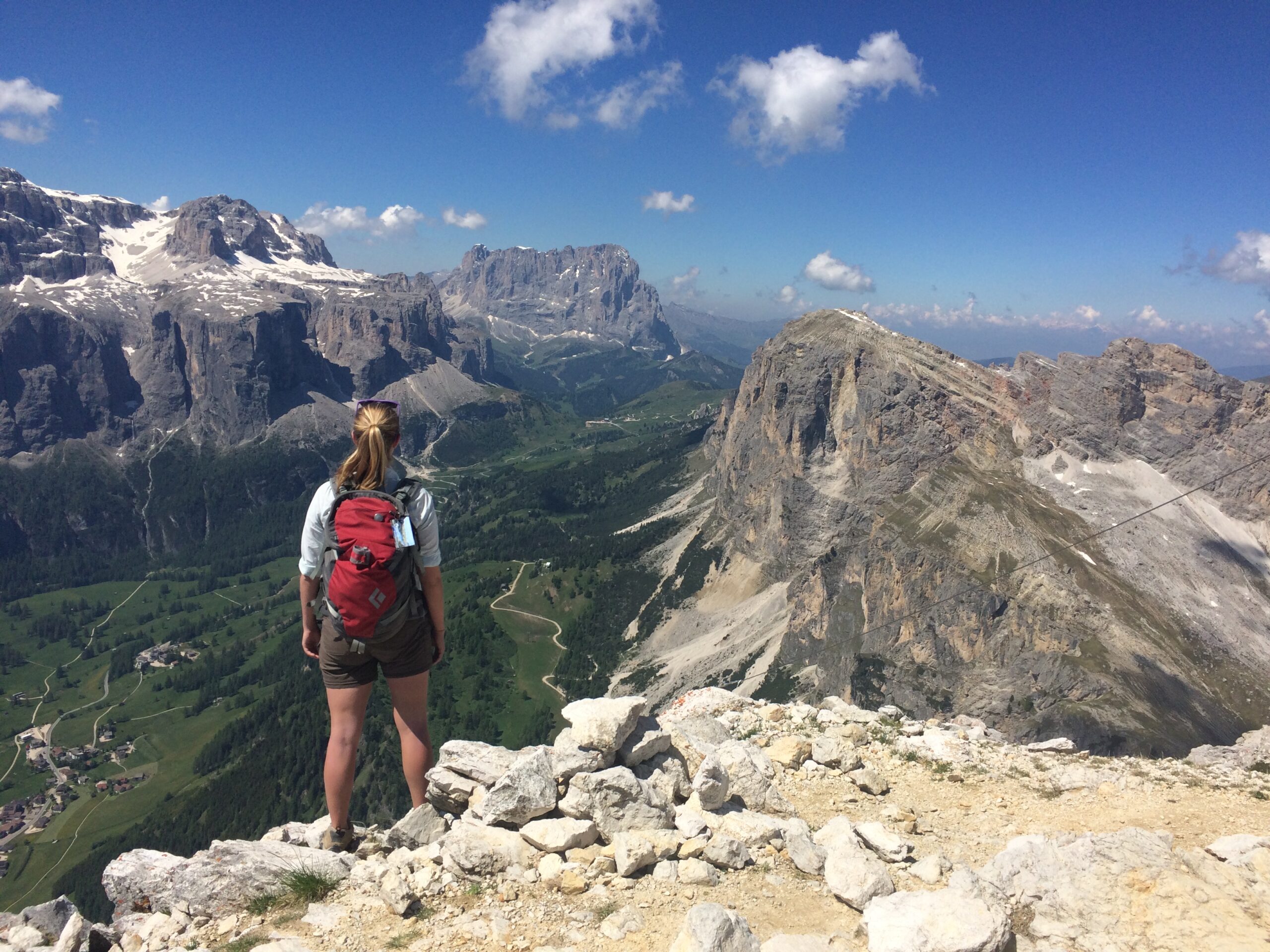This physicist hopes to shake up our understanding of space
Adeene Denton studies asteroid impacts to better understand the planets in our solar system

Adeene Denton was motivated to study geology after an inspiring course in college. That led to a career studying the geology of faraway Pluto.
Courtesy of A. Denton
Simulating an asteroid impact on distant Pluto is all part of a typical day for Adeene Denton. The PhD student studies planetary geoscience at Purdue University in West Lafayette, Ind. As an impact physicist, Denton wants to know what these cosmic smashups can reveal about planets.
NASA’s New Horizons spacecraft flew by Pluto in 2015. That was about the same time Denton started her PhD program. The mission offered scientists their first close-up views of the dwarf planet. The photos it sent back showed a world with mountains, valleys, craters — and even a heart-shaped glacier! Those photos and other data also sparked a lot of questions. For instance, does Pluto’s outer icy layer — or crust — change as Earth’s does, forming mountains or spewing lava from volcanoes?
Those Pluto data hooked Denton. Ever since, she has been using a mix of geology, astrophysics and coding to learn even more about this mysterious dwarf planet. In this interview, she shares her experiences and advice with Science News Explores. (This interview has been edited for content and readability.)

What inspired you to pursue this particular career?
I think a lot of scientists will say that they were really interested in astronomy or STEM from a young age. That they loved math and science. And I actually, really didn’t.
When I went to college, I entered as a history major. I took an introductory geophysics class, just out of curiosity. And I realized geology is really just history but on a vastly different timescale.
The professor started our class with the formation of the Earth. We talked about how the planet itself differentiated in that all the molten iron flowed down to form the core. I thought that this was so cool. When I started thinking about how different planets formed, I thought about it as a different way to try to do history and document how we got here. I didn’t really start pursuing science until I was a sophomore in college. And then after that, I kind of got deeper and deeper into it.
How do you get your best ideas?
Talking to people and other scientists. I’m actually, like, quite stupid by myself. I think most people are. If I’m left to my own devices, I tend to just not have ideas. This is why the pandemic was very hard in some ways, but then actually really cool in others. People started having a lot of virtual meetings and one-on-one meetings. When I started connecting with people from all around the world, I actually started having more ideas.
What’s one of your biggest successes in your career?
I published a paper last year that was quite symbolic of what I like about science, which is people coming together to answer a question and bringing their own expertise. I just happened to run into the head of the New Horizons mission. He had been revisiting photos of the far side of Pluto taken by New Horizons. He was interested in how what he was seeing in the photos could be related to the giant crater that’s on the other side of Pluto. If you hit a planet on one side, you could maybe make something happen on the other side. I thought it was a wild idea.
But I found that that is actually what happens: You can hit Pluto on one side and make a massive canyon on the other. And to do that, you would need to have a large liquid ocean underneath Pluto’s surface. It’s fun to think about a planet that’s 3 billion miles away. It’s so cold that it’s close to absolute zero. And yet, it could’ve at some point had a thick ocean that hosted life. Going from testing a crazy idea to actually learning something is why I do this. To me, that is success.
What’s one of your biggest failures? And how did you get past it?
Somebody told me that science is just the act of failing repeatedly until you actually do get something useful. That can be a very difficult thing to stomach. I hated that he told me this, but it’s not inaccurate. My failures have ranged from starting from scratch on a project that was almost completed, to having to switch planets while earning my PhD. I started working on Mars, and now I work on Pluto. And I’ve never looked back. If you want to keep doing science, if you want to keep exploring the universe, the only real answer is to take a step back, take a walk, go to sleep, wake up and try again.
What do you like to do in your spare time?
I am a dancer and a choreographer. How I approach physics is very much the way I approach dance. To dance, you have to have a very clear understanding of how your body moves in space. But also how your body creates negative space. The shapes that you can make with your body — like making a hole with your arm. So it’s a way to be physically creative that lets me go back to my work and think about it differently.
I like to explore the universe through the movement of the human body. So I’ve been making dances that explore human space exploration. Dances where you can communicate different kinds of scientific processes with your hands and your body. I made a dance recently with undergraduate students at Purdue. We took archival photos from the Apollo program and built a dance based on what people were doing in those. That was really fun.
What piece of advice do you wish you had when you were younger?
In our society, we’re given a certain image of what it looks like to be good at science. We’re given this image in popular culture of the lone genius, right? The kind of person that stands at the whiteboard, doing cool math and all the equations. Or they’re in there in the lab doing XYZ by themselves. I looked at that as the kind of thing scientists did. That was what the model was.
I didn’t really see myself in that. I didn’t think that I could do that, or that I even would want to. But I really liked science. I had this interest in how the Earth works for most of my life. I just didn’t realize that you could try to answer this question in a completely different way. I wish that someone had told me that there is so much more to science than what’s shown to us in the media. If you find something interesting, there will always be a way to try to answer those questions. There will be a way to use the skills that you have and develop new ones to explore in a way that is interesting and useful.







